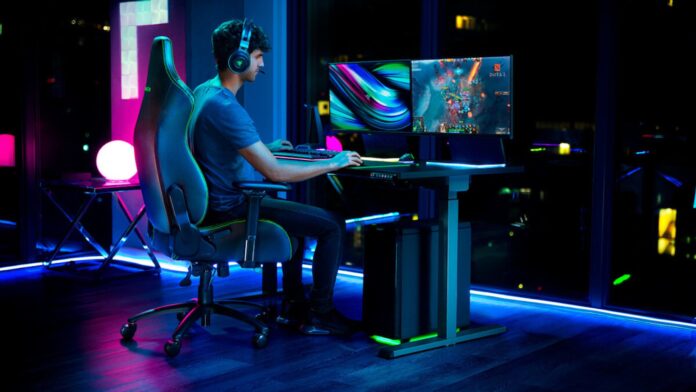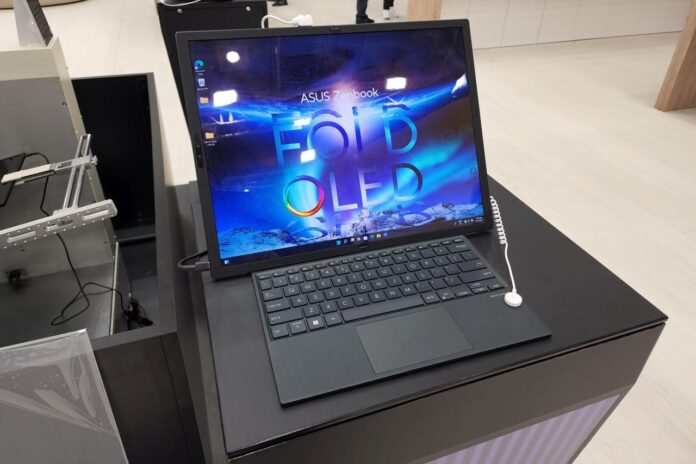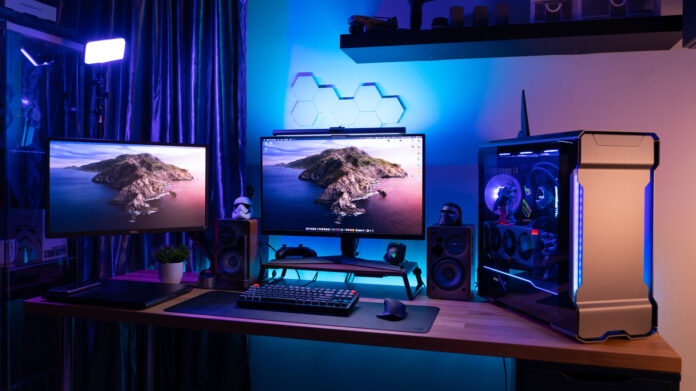Buying an asset to support your line of interest feels like a big decision, and it is. Gaming PCs and laptops are the most common purchase for any gamer and what you buy will make or break the overall experience. With that in mind, here are 10 crucial decisions to make before you commit to buying any device. Your answer to the following quandaries will determine what kind of gaming style your future holds.
1. Self-Built or Pre-Built?
Before you start shopping, decide whether you want to build the computer yourself or if you prefer to buy an already-made model. This decision will influence the budget, components, and more. Building your own PC has a lot of perks, mainly the autonomy factors and flexibility to do what you want how you want to, but it takes up a lot of time, and therefore the results are not immediate. If you buy a pre-built model, you have instant access to your gaming kingdom and can enjoy things straight away. So, there are perks to both sides of the coin.
2. The Size
The size will be determined by how much space you have, but it is still important to think about. Lots of gaming PCs are available in standard computer sizes, but there are also workstations, mini PCs, and large towers to add to this mix. Alongside the laptop and Chromebook options, you have every size at your disposal to choose from.
3. Gaming Style

Do you game for a couple of hours on a weekend, or are you a dedicated daily player? Do you play mainly online things or are you more advanced in your selections, for example, taking advantage of the many gaming streaming platforms that currently exist? If you are the former, then you might not need a top-tier gaming PC; however, the latter will benefit from the higher specs and dedicated components.
4. Graphics
Gaming PCs will always come equipped with an integrated graphics chip attached to the motherboard. However, this can be stepped up a notch and a half by switching to a discrete graphics option, which you can read more about here. Integrated graphics are good and will suit a lot of gaming needs, but discrete graphics are considered to kick things into a higher gear when it comes to clearer visuals and loading speeds. Given that what you see on the screen is such an important factor, in that it has to be clear, glitch free and a proper representation of the intended creation, the GPU and associated parts have to be the best fit.
5. Processor
The processor, also known as the CPU or central processing unit, is what makes everything move. Therefore, it needs to be powerful enough to handle not only the GPU but the big sized games as well, including everything that may entail, from loading to interactions and general gameplay. It is not recommended to cut costs when it comes to the CPU, because it is such an integral part of the process. Cheaper options are more likely to fail which can put the whole PC in jeopardy. Another thing to consider is the power you need to play your favorite games. It isn’t the same if you plan on playing GTA, Minecraft or Roblox.
6. Your Budget

All of the above points are well and good if you have the budget to cater to demand. What you have in your savings pot will determine the quality of the product you can ultimately buy, and as we’ve said there are some parts you just cannot compromise on when it comes to price versus quality. That being said, there are secondhand options and refurbished components or whole PCs and laptops that work too. Ideally, look at spending between $450 and $1000 for the higher value, better quality devices.
7. Cooling Off
Think about how hard the internal components are working to render, load, and sustain a big picture game — it is bound to kick out some natural heat because of these processes. With all these powerful parts, it is a natural conclusion that the PC or laptop will need a supportive cooling system to avoid breakage and failures from overheating problems. Whether you add in your own or you observe the pre-installed option, don’t make a purchase without making provisions for this. It will end up costing you more money when the device inevitably becomes defunct from too much heat.
8. Memory and Storage
RAM is another essential consideration, and the decision lies in depending on internal RAM storage or accepting that there will be a need for external input. SSD cards are a common add-on for gamers because of the sheer size and CPU demands that come from the games on the market. To avoid system failures, poor loading speeds, and even shutdowns, the RAM has to be of a commendable capacity. This means looking for a device that can accommodate at least 32GB, if it can’t you are going to need a memory card or similar to pick up the slack.
9. Monitor and Screen Decisions

Gaming monitors come in a variety of formats too. There are curved monitors, split screen options, huge screens, and the more standard, 24 inch option. The resolution and pixel format capacity also change the way a game is played and viewed. There is no point in investing in a top-tier GPU system if the screen cannot handle the rendering. 244Hz and above is what pro gamers should aim for.
10. The Accessories
Finally, with all the internal components in place and accounted for, it is time to look at the accessories part of the project. Gaming keyboards have many benefits from touch sensitive capacities to all-in aesthetics. The right gaming mouse can make the difference between winning and losing in terms of accuracy, and a supportive sound system is not to be dismissed. These three factors alone can enhance the whole experience and are in their own right, crucial factors to be decided upon.
Despite it seeming like a lot of information to take in, all of the above considerations are crucial to the process. Make your PC the best it can possibly be by accounting for everything and give yourself the ultimate gameplay experience.




